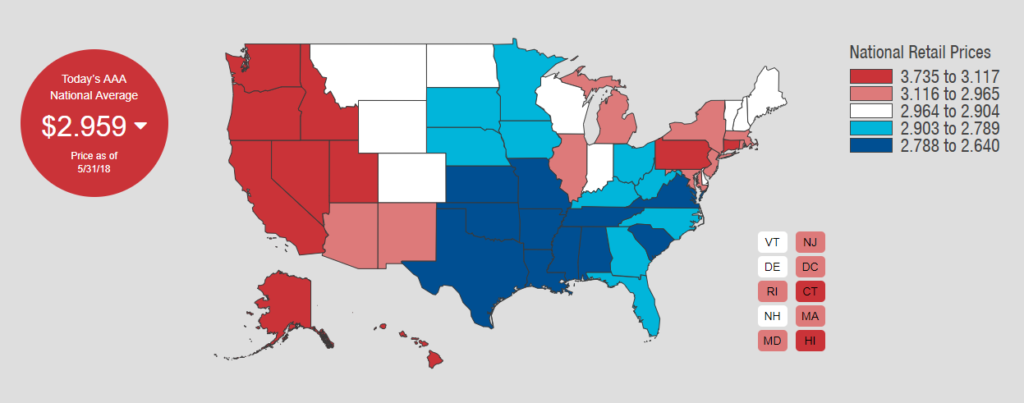
Summer Heat Brings Higher Fuel Costs
For most American’s summer means high heat and higher gas prices, and 2018 will likely be no exception. According to AAA, motorists across the country are on the brink of $3 per gallon for regular gasoline, with diesel fuel running $3.20. While these prices are a far cry from the $4-plus prices of 2008, the price increases for fuel are a real concern for small businesses across the country. The common reaction to gas price increases is to point to Congress and the administration for the added pain at the pump, however, the answer is a bit more complex than one would expect. As Nicolas Loris at the Heritage Foundation pointed out, “Because oil is a globally traded commodity, different factors around the world affect the supply of and demand for oil, which in turn affects the price Americans pay at the pump.”
In some ways, increased demand is a “good problem” to have. Fuel price increases can indicate that demand is high, businesses need fuel to function, and the market is reflecting the demand for more. However, that’s not the end of the equation. On the supply side, OPEC nations have been gradually reducing output, with 21 countries reducing production by a total of nearly 1.8 million barrels per day. This decrease in supply and increase in demand is driving up fuel prices. The increase in fuel prices has practical ramifications for small businesses. Tight margins and limited resources can cause small business owners to sweat, particularly when they can’t predict the future costs of fuel.
While increased domestic production alone may not solve the expense in the near term, it can help insulate the United States from price volatility in the future. The U.S. is poised to overtake Saudi Arabia and Russia as the world’s largest oil producers. The latest projection from the EIA estimates that U.S. production could reach nearly 12 million barrels per day in 2019. America’s energy revolution is a remarkable story that demonstrates the benefits of human ingenuity and entrepreneurial passion. FBAE continues to support policies that make it easier for the US to produce more fuel domestically because it will help keep fuel prices low into the future.

